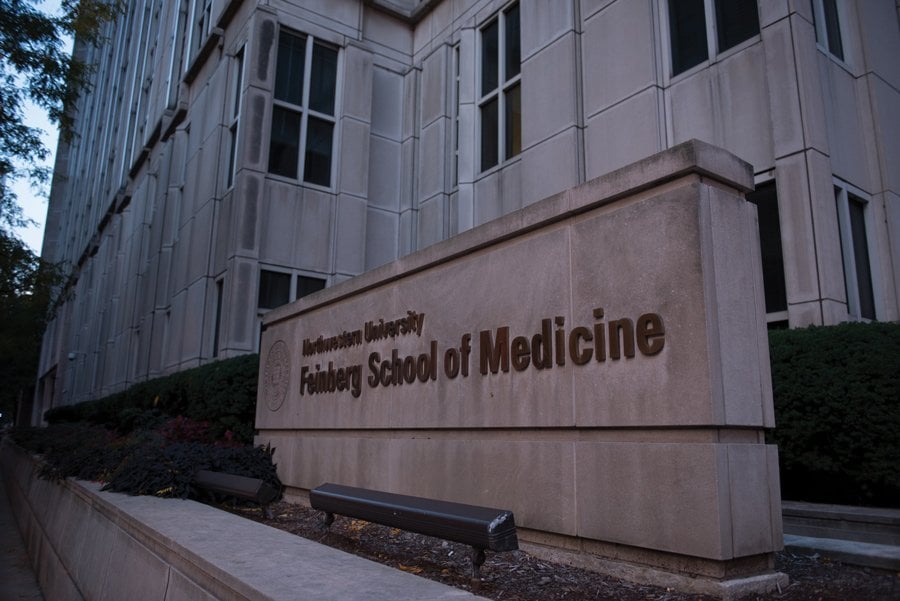NUCATS funds Feinberg studies on COVID-19
Daily file photo by Katie Pach
The Feinberg School of Medicine. Researchers at the school recently discovered Illinois’ first case of the P.1 COVID-19 variant.
October 26, 2020
With the help of Northwestern University Clinical and Translational Sciences Institute, Chicago has become a center for COVID-19 research.
NUCATS has funded multiple COVID-19 research projects, which allows researchers to launch studies that will help them better understand the virus in the Chicago area. Feinberg Prof. Judd Hultquist and a group of investigators at Feinberg received two awards that funded their work, both of which were supported by NUCATS.
“NUCATS really was the start of our work,” Hultquist said. “Without that original seed grant from NUCATS, we wouldn’t have been able to expand our research to the extent that we have, so we’re incredibly grateful to them for all of their support.”
Their group is currently studying the origins and epidemiology of the SARS-CoV-2 outbreak in Chicago with a focus on how viral mutations may influence disease spread and clinical outcomes. So far, they have discovered three different clades, or families, of virus that were circulating around the Chicago area.
Hultquist said the genotypes of the virus may influence the viral load, which may in turn affect the transmission or spread of these viruses.
“You can imagine if there’s more virus in, for example, the upper airway of a person when they’re sick, they’d have a higher chance of spreading that virus,” Hultquist said.
Hultquist added that more work needs to be done to understand animal models of transmission. The group plans to conduct research on other aspects of the virus, including on differences in the viral family impact those infected, he said.
NUCATS also helped establish the Northwestern Healthcare Worker SARS CoV-2 Serology Study. Led by Feinberg Profs. John Wilkins and Charlesnika Evans, the study aims to understand the risk of infection with SARS CoV-2 among healthcare workers in the Northwestern Medicine system.
Roughly 5 percent of NU healthcare workers have been infected with the virus and around 10 percent had significant exposures to the virus outside of the hospital, according to study results. It also found that of the occupation groups, only nurses had significantly higher risks of infection.
For the “standard model of research,” research grants can often take at least a year to get reviewed and for the funding to take into effect, Wilkins said. However, NUCATS has more “rapid review mechanisms” which allowed the group to get the project started very quickly.
“With the pandemic, we didn’t have that kind of time,” Wilkins said. “NUCATS’s funding was essential to getting this off the ground.”
Wilkins said his group plans on doing further research into how the patterns of infection risk change over time, how the different exposures people have changed over time and how those two are related.
Feinberg Prof. Jaline Gerardin received a COVID-19 Rapid Response grant from NUCATS. She is working on several projects, including one that involves developing a capacity model for regional hospitals in anticipation of a potential second wave of COVID-19.
Gerardin said all the work that people are doing on the virus helps build a knowledge base that one could rely on to make decisions and implement policies.
“The hope is that the more you understand about the virus and the disease and the transmission, the better you’ll be able to respond with actions that will prevent adverse health outcomes in as many people as possible,” Gerardin said.
Email: [email protected]
Twitter: @vivianxia7
Related Stories:
― Northwestern researchers find new weakness that causes COVID-19


